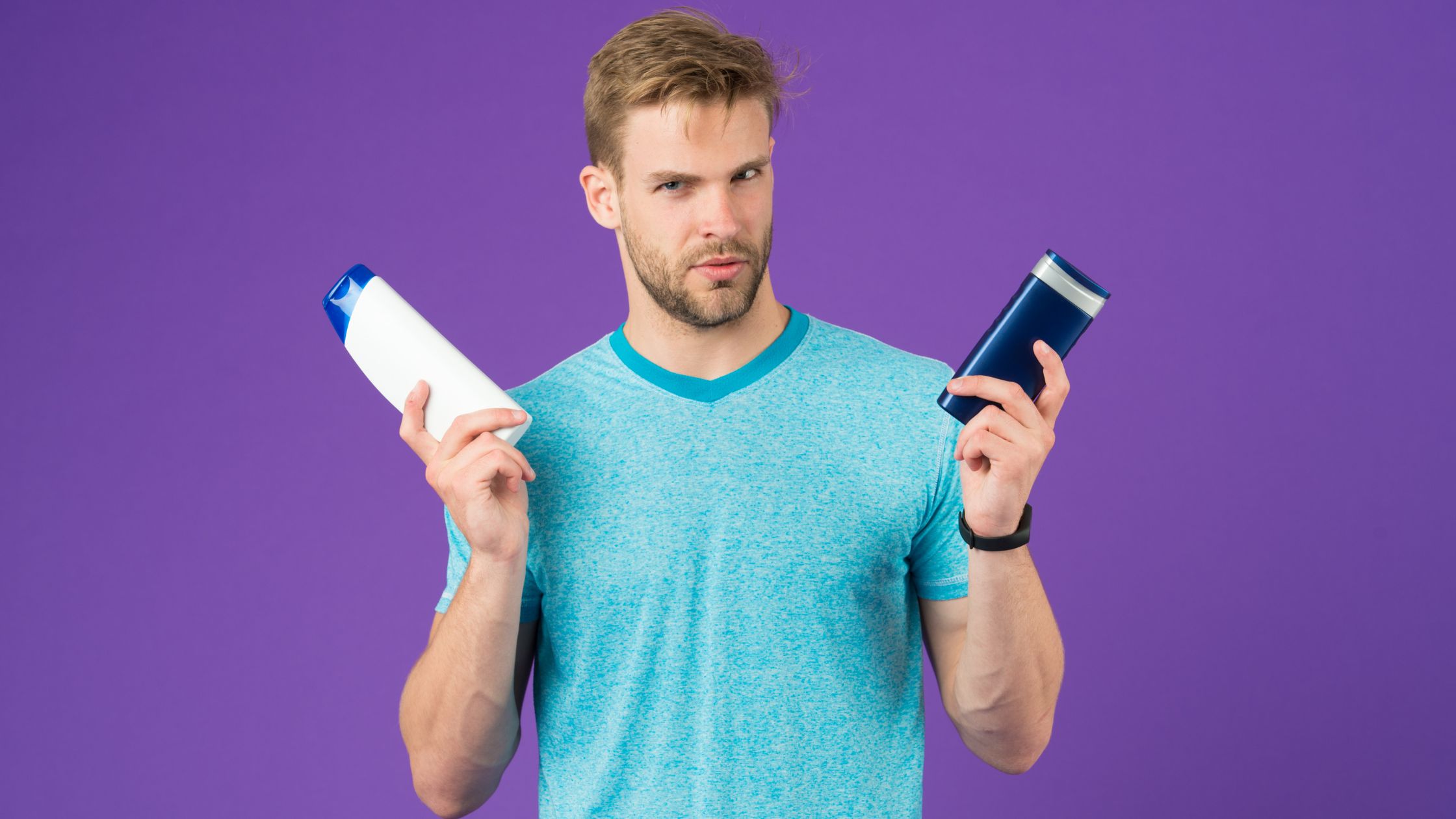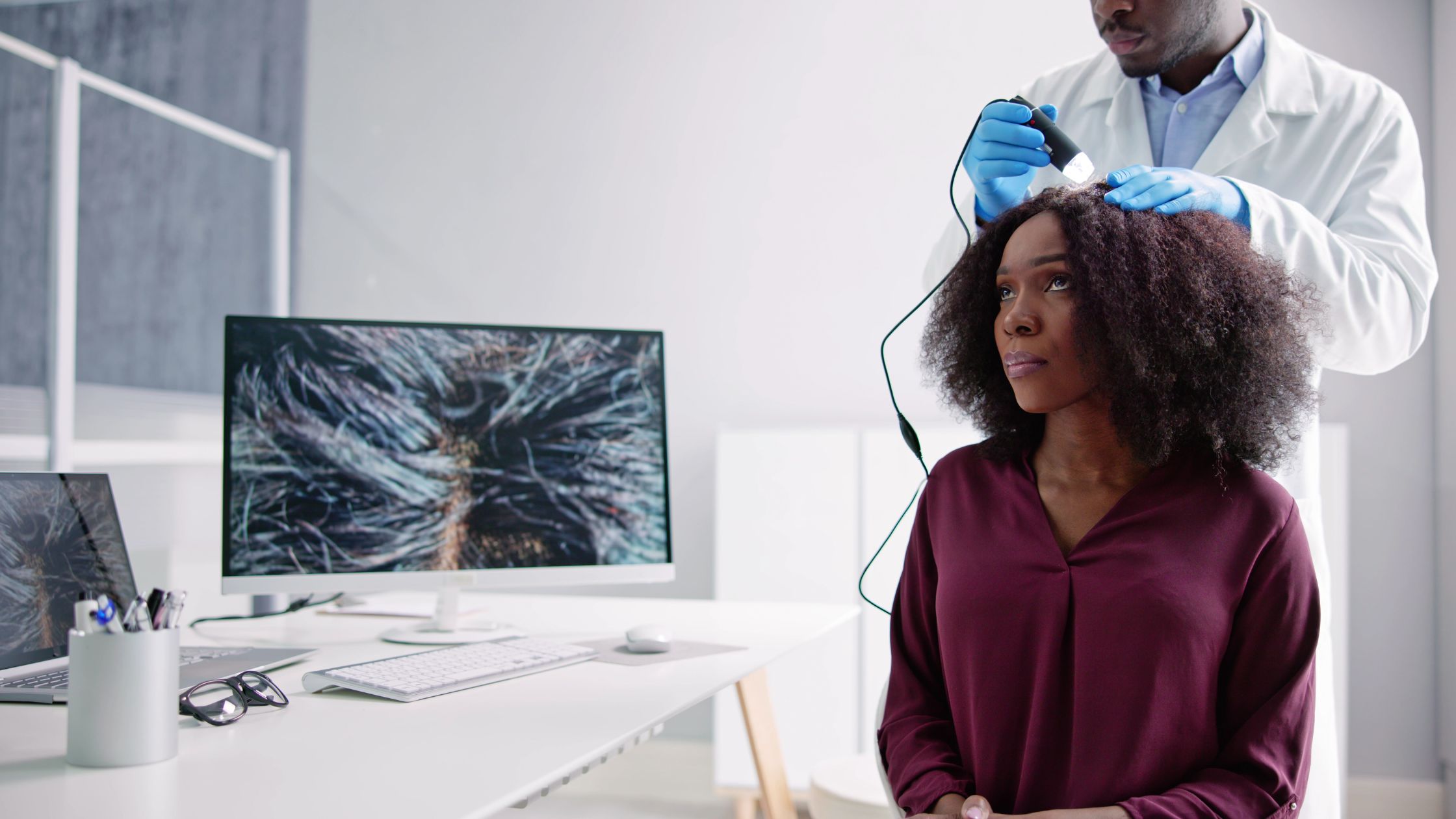Dandruff can be an embarrassing and often persistent issue that affects a significant portion of the population. Whether it’s the tell-tale flakes on your dark clothing or the uncomfortable itchiness, dandruff is a problem many wish to eliminate. This comprehensive guide will explore the causes of dandruff, preventive measures, and effective treatments to help you achieve a healthy, flake-free scalp.
What Exactly Is Dandruff?
Dandruff is a common scalp condition characterized by the shedding of excessive amounts of dead skin cells in the form of white flakes. Although a small amount of flaking is normal, as skin cells do die and flake off, a person with dandruff will experience an unusually large flaking, which can also be accompanied by redness and irritation.
Why Do I Get Dandruff?
Several factors can contribute to the development of dandruff, including:
- Seborrheic Dermatitis: This is one of the most frequent causes of dandruff. It’s marked by red, greasy skin covered with flaky white or yellow scales. Seborrheic dermatitis affects many areas of the skin, including the scalp, sides of the nose, eyebrows, ears, eyelids, and chest.
- Malassezia: A yeast-like fungus that lives on the scalps of most adults. While usually harmless, it can sometimes grow out of control and cause skin cells to multiply too quickly, leading to dandruff.
- Dry Skin: Flakes from dry skin are generally smaller and less oily than those caused by other reasons for dandruff. You might also notice dry skin flakes in other parts of your body.
- Sensitivity to Hair Care Products (Contact Dermatitis): Some people react to certain ingredients in hair care products, leading to a red, itchy, scaling scalp.
- Other Skin Conditions: People with psoriasis or eczema are more prone to developing dandruff.
How Can I Treat Dandruff?
The good news is that dandruff can often be controlled. In mild cases, you might only need a gentle daily shampoo to reduce oiliness and skin cell buildup. If that doesn’t help, some of the following treatments might:

- Zinc Pyrithione Shampoos: These contain an antibacterial and antifungal agent that can reduce the fungus on your scalp that can cause dandruff and seborrheic dermatitis.
- Tar-based Shampoos: Coal tar slows how quickly skin cells on your scalp die and flake off. However, tar soap can discolor light-colored hair and make your scalp more sensitive to sunlight.
- Shampoos Containing Salicylic Acid: These help eliminate scalp scales but may leave your scalp dry, leading to more flaking. Using a conditioner after shampooing can help counter dryness.
- Selenium Sulfide Shampoos: These reduce the production of natural oils by glands in your scalp and help to prevent dandruff. Use these products as directed and rinse well, as they can discolor the hair and scalp.
- Ketoconazole Shampoos: This broad-spectrum antifungal treatment can be used regardless of age. It’s over-the-counter and by prescription.
Home Remedies for Dandruff
Apart from medical treatments, several home remedies can help manage dandruff:
- Tea Tree Oil: Long used in traditional medicine, tea tree oil has antimicrobial and anti-inflammatory properties, which can help alleviate symptoms of dandruff. It’s often found in shampoos and other topical treatments.
- Coconut Oil: Known for its multiple health benefits, coconut oil could also help improve hydration and prevent dryness, which can worsen dandruff.
- Aloe Vera: Often used to soothe burns and other skin ailments, aloe vera could also help reduce the irritation caused by dandruff.
- Baking soda. Gently rub it into your scalp in the shower and rinse after a few minutes.
- Apple cider vinegar. Mix 1/4 cup with a 1/4 cup of water. Apply to your hair for 15 minutes to 1 hour, and then rinse out. Do this twice a week.
- Lemon juice. Rub 2 teaspoons into your scalp and rinse out. Then rub one more teaspoon mixed with 1 cup water. Do this every day.
- Olive oil. Rub 10 drops into your scalp. Cover your head with a shower cap and leave overnight. Shampoo and wash your hair in the morning.
Lifestyle and Home Tips
Managing dandruff also involves some practical day-to-day strategies:
- Manage Stress: Stress can trigger dandruff in some people, so managing it through yoga, meditation, or other relaxation techniques might help.
- Eat a Healthy Diet: A diet that provides enough zinc, B vitamins, and certain fats may help prevent dandruff.
- Be Mindful of Hair Care Products: Try to reduce the use of styling products. Frequent use of these can build up on your scalp and hair, making them oilier.
When to See a Doctor?

Suppose your dandruff is severe or your scalp becomes inflamed, itchy, or sore. In that case, seeing a doctor or dermatologist is a good idea. They can prescribe stronger treatments than those you can buy at the store.
Dandruff might be a persistent condition, but it’s generally controllable. You can keep those flakes at bay and maintain a healthy scalp with the right care. Here are some additional tips and considerations if standard remedies aren’t cutting it:
Medical Treatments
If over-the-counter shampoos and home remedies aren’t effective, a doctor may recommend a prescription-strength shampoo or a topical steroid lotion. Here are some additional medical treatments that might be considered:
- Prescription-Strength Ketoconazole Shampoo: For stubborn cases, a stronger formulation of ketoconazole may be necessary.
- Topical Steroids: For severe inflammation, topical steroids can be effective. These can reduce itching and inflammation associated with severe dandruff or seborrheic dermatitis.
- Calcineurin Inhibitors: Drugs such as pimecrolimus cream or tacrolimus ointment can be useful for managing symptoms, especially if you have light-colored hair where tar shampoo is unsuitable.
Common Misconceptions
Lastly, let’s clear up some common misconceptions about dandruff:
- It’s Caused by Poor Hygiene: While regular washing can help control oil, dandruff is not simply caused by poor hygiene. It’s more closely linked to the abovementioned factors, like oil production, fungal growth, and skin cell turnover.
- It’s Contagious: Dandruff is not contagious. You cannot catch it from or spread it to another person.
- It’s Only a Cosmetic Issue: While dandruff isn’t dangerous, it can be a symptom of underlying health issues. If you’re experiencing severe or persistent symptoms, it’s wise to consult a healthcare provider.
Conclusion
Dandruff can be distressing and uncomfortable, but for most people, it’s manageable with the right approach and treatments. Whether you choose over-the-counter solutions or home remedies or seek professional advice, remember that you might need to try several methods to find what works best for you. You can maintain a healthy, comfortable scalp and say goodbye to dandruff flakes with patience and persistence.
Resources– https://www.mayoclinic.org/diseases-conditions/dandruff/symptoms-causes/syc-20353850#
